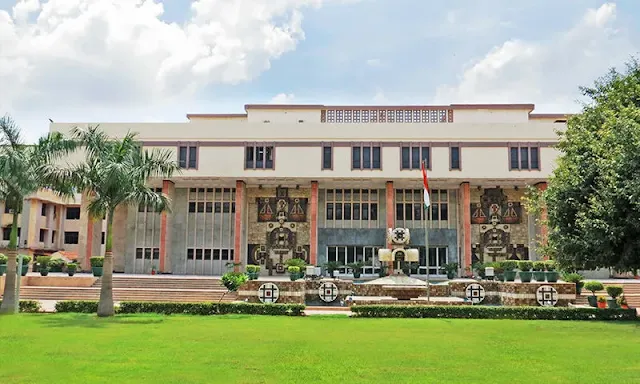In a significant judgment, the Delhi High Court has reduced the suspension period imposed on an Insolvency Professional (IP) by the Disciplinary Committee of the Insolvency and Bankruptcy Board of India (IBBI), finding the penalty to be disproportionate. The court observed that the Disciplinary Committee overlooked material aspects and relied on incorrect data while imposing the penalty. This decision underscores the importance of proportionality and due process in disciplinary actions against professionals.
Background of the Case
The case pertains to an appeal filed by Mr. Sandeep Kumar Bhatt, an Insolvency Professional, against a two-year suspension imposed by the IBBI's Disciplinary Committee. The suspension was based on alleged violations during his tenure as the Resolution Professional (RP) in the Corporate Insolvency Resolution Process (CIRP) of GTHS Retails Pvt. Ltd. The National Company Law Tribunal (NCLT) had admitted an application under Section 9 of the Insolvency and Bankruptcy Code (IBC) against the company on August 3, 2017, and appointed Mr. Bhatt as the Interim Resolution Professional (IRP). He was later confirmed as the RP on December 20, 2017.
On July 4, 2019, the NCLT noted that the CIRP period had lapsed and the Resolution Applicant had withdrawn his offer, leading to the initiation of liquidation proceedings. Mr. Bhatt was discharged from the case on October 16, 2019, and Mr. Ramit Rastogi was appointed as the liquidator. Subsequently, the liquidator filed a dissolution application, and the NCLT directed the liquidator to place on record the Valuation Report.
IBBI's Disciplinary Action
On April 25, 2023, the IBBI issued an investigation notice under Regulation 8(1) of the Inspection Regulations. Mr. Bhatt responded, stating that the liquidator had reported the wrong liquidation value by filing the application for dissolution. However, the investigation report dated August 8, 2023, concluded that Mr. Bhatt had violated Sections 25(1), 25(2)(a), 25(2)(b), and 208(2)(e) of the IBC, as well as the IBBI Code of Conduct. A Show Cause Notice (SCN) dated August 25, 2023, was issued under Sections 2(1)(a) and 220(2) of the IBC. On November 1, 2023, the Disciplinary Committee suspended Mr. Bhatt's registration as an Insolvency Professional for two years under Section 220 of the IBC.
Legal Proceedings and Contentions
Mr. Bhatt challenged the suspension by filing a writ petition, which was dismissed by a Single Judge on August 27, 2024. Subsequently, he filed an appeal against the Single Judge's judgment. During the appeal, Mr. Bhatt's counsel, Mr. Mohit Nandwani, argued that the NCLT's order dated January 17, 2023, in PR International v. GTHS Retails Pvt. Ltd., mistakenly treated the book value (Rs. 4.28 crores) as the liquidation value. Based on this, the NCLT called upon the IBBI to investigate, leading to the issuance of the notice to Mr. Bhatt.
Mr. Nandwani contended that the SCN dated August 25, 2023, issued under Section 219 of the IBC and Regulations 11 & 12 of the IBBI (Inspection and Investigation) Regulations, 2017, was based on incorrect data and failed to consider that Mr. Bhatt had been discharged from the case before the alleged discrepancies occurred.
Delhi High Court's Observations and Judgment
The Delhi High Court bench, comprising Chief Justice Devendra Kumar Upadhyaya and Justice Tushar Rao Gedela, examined the case and found that the Disciplinary Committee had overlooked material aspects and relied on incorrect data while imposing the penalty. The court noted that Mr. Bhatt had been discharged from the case on October 16, 2019, and the alleged discrepancies in the liquidation value occurred after his discharge. Therefore, holding him responsible for actions taken by the liquidator was unjustified.
The court emphasized the principle of proportionality in disciplinary actions and found that the two-year suspension was disproportionate to the alleged misconduct. Consequently, the court reduced the suspension to the period already undergone by Mr. Bhatt, effectively lifting the remaining suspension.
Implications of the Judgment
This judgment has significant implications for the regulatory framework governing Insolvency Professionals in India. It underscores the importance of due process and the need for disciplinary authorities to base their decisions on accurate data and a thorough consideration of all relevant facts. The court's emphasis on proportionality serves as a reminder that penalties should be commensurate with the severity of the misconduct and the individual's level of responsibility.
Furthermore, the judgment reinforces the principle that professionals should not be held accountable for actions taken after their discharge from a case, especially when they have no control over subsequent developments. This provides clarity and reassurance to Insolvency Professionals regarding the scope of their responsibilities and liabilities.
Conclusion
The Delhi High Court's decision to reduce the suspension period imposed on Mr. Sandeep Kumar Bhatt by the IBBI's Disciplinary Committee highlights the judiciary's role in ensuring fairness and proportionality in regulatory actions. By scrutinizing the basis of the disciplinary action and acknowledging the inaccuracies in the data relied upon, the court has set a precedent for meticulous and just evaluation of professional conduct. This judgment serves as a guiding light for both regulatory bodies and professionals, emphasizing the need for accuracy, fairness, and proportionality in disciplinary proceedings.




0 Comments
Thank you for your response. It will help us to improve in the future.